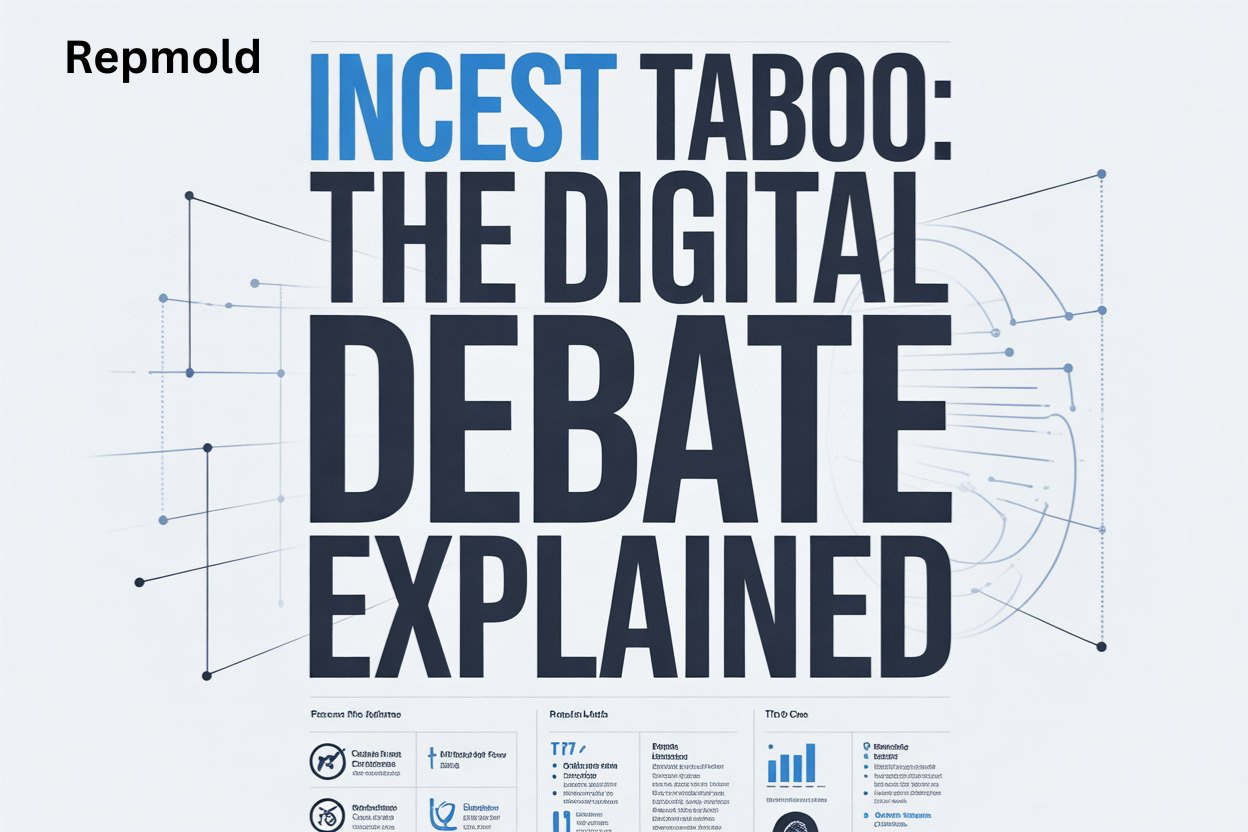Introduction : Understanding the Buzz Around Incestflox
In today’s fast-changing digital world, new terms appear almost every day. One of the latest to spark attention is Incestflox. This word has quickly become a topic of online curiosity, discussion, and debate. Many people are trying to understand what it means and why it’s suddenly trending.
The rise of Incestflox shows how fast the internet can turn niche ideas into global conversations. It reflects how online culture constantly explores complex, sensitive, and sometimes controversial subjects. Because of its unusual name and associations, Incestflox easily captures public interest.
However, this topic is not about judgment or sensationalism. Instead, it invites a balanced discussion. Through exploring its meaning, context, and social impact, readers can better understand why Incestflox has become part of today’s digital dialogue and what it reveals about modern online behavior.
What Is Incestflox? Definition and Context
The term Incestflox is a modern creation born from online communities and digital expression. It combines complex ideas into a single word that reflects how internet culture often experiments with language. Although the exact origin is unclear, it likely began within niche online groups that explore unconventional or taboo subjects. Over time, the term gained attention and became a point of discussion in wider digital spaces.
In many ways, Incestflox represents how communication has changed in the internet age. People now create new words to describe ideas that traditional language cannot easily express. These invented terms help define emerging trends, online behaviors, or digital identities.
Moreover, Incestflox shows how creative and dynamic online culture can be. It highlights the way users build communities, develop slang, and challenge social norms through evolving digital platforms and collective imagination.
How Incestflox Emerged in Digital Communities
The rise of Incestflox can be traced back to the growth of online communities. In the early days of the internet, people gathered in forums and chat groups to share niche interests. Over time, these spaces expanded into decentralized platforms where users could discuss almost any topic without strict moderation. Through this freedom, unique ideas and terms like Incestflox began to spread rapidly.
Fandom spaces and roleplay communities also played a major role. These groups often experiment with storytelling, world-building, and unconventional themes. In such creative environments, new expressions easily take shape and gain recognition. As conversations moved across platforms like Reddit, Discord, and private servers, the term became more visible.
Anonymity further encouraged participation. Users felt safe exploring sensitive or experimental discussions without revealing their identity. This freedom of expression helped Incestflox grow from a small online idea into a wider digital conversation.
Why Incestflox Sparks Debate Online
The topic of Incestflox often triggers intense debate in digital spaces. This happens because it touches on moral, ethical, and sometimes legal gray areas. While the platform or term may focus on fictional or creative expression, its themes can still raise questions about what is acceptable to share online. As a result, communities often clash over how far digital freedom should go.
Supporters view Incestflox as a symbol of free expression and creative freedom. They argue that online spaces should allow people to explore complex or taboo ideas through art, writing, or discussion. In their view, such freedom encourages open-mindedness and self-expression.
However, critics see the opposite side. They worry that repeated exposure to taboo content might normalize sensitive behavior or desensitize audiences. They also question the ethical impact of such content on public values and mental health.
Ultimately, Incestflox highlights larger questions about the boundaries of the internet. How much freedom should users have? Who decides what is too far? These discussions show that digital culture is still learning how to balance creativity, safety, and responsibility in an ever-expanding online world.
The Psychology Behind Taboo Curiosity
Human nature is deeply curious, especially about the things society considers off-limits. This curiosity often drives people to explore topics that are controversial or restricted, both offline and online. The case of Incestflox is a clear example of this pattern. People may not always agree with the content, yet the mystery surrounding it attracts attention.
According to digital psychology, online spaces lower social barriers. Users feel safer exploring ideas that they might avoid in real life. The sense of anonymity gives them freedom to observe, question, or discuss taboo subjects without fear of judgment. This combination of curiosity and privacy fuels engagement with sensitive content.
Moreover, psychologists suggest that such interest can come from a desire for understanding, not approval. Many people seek to know why certain topics are forbidden or how others react to them. In this way, taboo curiosity becomes a window into human behavior, rebellion, and the ongoing tension between moral limits and intellectual exploration in the digital age.
Ethical and Legal Perspectives on Incestflox
The topic of Incestflox often enters a complex space where ethics and law intersect. Different regions have different digital laws, censorship rules, and definitions of acceptable content. What may be allowed in one country could be strictly banned in another. This variation makes global regulation difficult, especially when platforms operate across multiple borders.
Because of these differences, the responsible use of digital platforms becomes essential. Users must understand that freedom online also requires mindfulness. Similarly, platform owners have a duty to apply moderation systems that prevent the spread of harmful or exploitative material. Balanced rules can protect creative expression while maintaining public safety.
At its core, Incestflox represents the ongoing struggle between freedom and accountability in the digital age. It raises key questions: how much control should platforms have, and how much responsibility belongs to users? Finding harmony between these two sides remains one of the biggest challenges for modern internet culture.
Social and Cultural Impact of Incestflox
The growing attention around Incestflox has clear effects on both online behavior and wider society. When people are repeatedly exposed to taboo topics, their reactions and attitudes can slowly change. Some may become more open-minded, while others might grow more indifferent. This shift in sensitivity, often called desensitization, can influence how users respond to moral and ethical boundaries.
In digital culture, constant interaction with sensitive material can normalize ideas that were once rejected. Therefore, awareness and education are extremely important. Users should learn to separate fictional curiosity from real-life behavior. By promoting digital literacy, communities can encourage thoughtful discussion instead of blind acceptance.
Furthermore, media coverage plays a powerful role. When news outlets or blogs discuss Incestflox, their tone shapes how the public perceives it. Balanced reporting can help people understand the issue responsibly, while sensational headlines may create fear or confusion. Ultimately, the way society reacts to Incestflox reflects broader changes in how we view freedom, ethics, and responsibility online.
What Experts and Academics Say
Experts and researchers studying digital ethics and online culture have shown growing interest in topics like Incestflox. Many believe it reflects how the internet constantly reshapes language, identity, and moral understanding. According to digital ethics specialists, online spaces often blur the lines between free expression and responsible content sharing. This balance is difficult to maintain, especially when sensitive themes gain attention.
Psychologists suggest that platforms like Incestflox reveal how curiosity and anonymity influence human behavior. They note that people often engage with taboo subjects to explore emotion, creativity, or rebellion in safe digital settings. However, they also warn that overexposure can reduce empathy and increase detachment from real-world values.
Cultural linguists view Incestflox as part of a larger trend in internet linguistics. They explain that new words and ideas spread quickly online, shaping how people discuss and understand social issues. Overall, experts agree that Incestflox highlights the ongoing evolution of communication, ethics, and human psychology in the digital era.
The Future of Incestflox and Similar Platforms
Looking ahead, the future of Incestflox and similar platforms remains uncertain. As online culture continues to evolve, several possible paths may emerge. Some experts believe stronger digital regulations could limit or reshape such platforms. Governments and tech companies may tighten policies to ensure safer and more ethical use of online spaces. This could lead to stricter moderation or even the removal of certain types of content.
Alternatively, these platforms might rebrand or adapt to new cultural expectations. By focusing on creative storytelling and responsible expression, they could shift away from controversy while still maintaining community engagement. However, if interest fades or new trends appear, a gradual decline in activity is also possible.
In any case, the conversation should remain open and respectful. Encouraging honest discussion about sensitive topics helps promote awareness, empathy, and understanding. The future of Incestflox ultimately depends on how society chooses to balance freedom, ethics, and digital responsibility.
Conclusion : A Reflection on Digital Freedom and Responsibility
The discussion around Incestflox highlights how deeply digital culture influences modern communication and behavior. Throughout its rise, the term has represented more than controversy—it reflects how the internet allows people to explore, question, and redefine social limits. It shows how creativity and curiosity can thrive in open spaces, yet also reminds us of the need for caution and self-awareness.
In today’s connected world, digital freedom comes with equal responsibility. Users, creators, and platforms must act with empathy, respect, and understanding. Awareness is key to maintaining a safe and meaningful online environment where ideas can grow without harm.
Ultimately, Incestflox serves as a mirror of human complexity. It reminds us that the internet is not just technology—it is a reflection of who we are, what we value, and how we continue to balance freedom with ethics in the digital age.

